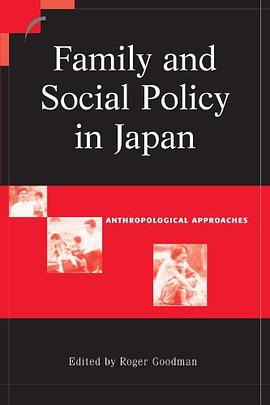

具體描述
Social policies reflect and construct important ideas in societies about the relationship between the state and the individual. This 2002 book examines this relationship in a number of hitherto unexplored areas in Japanese society including policies relating to fertility, peri-natal care, child care, child abuse, sexuality, care for the aged and death. The conclusion is that a great change has taken place in all these areas through the 1990s as a consequence of Japan's changing economy, demography and the development of civil society. The case studies, based on intensive anthropological fieldwork, not only demonstrate how and why family and social policies have evolved in the world's second largest economy, but in the process provide a challenge to many of the assumptions of western policymakers. The empirical material contained in this volume will be of interest to anthropologists and to students and practitioners.
作者簡介
目錄資訊
讀後感
評分
評分
評分
評分
用戶評價
相關圖書
本站所有內容均為互聯網搜索引擎提供的公開搜索信息,本站不存儲任何數據與內容,任何內容與數據均與本站無關,如有需要請聯繫相關搜索引擎包括但不限於百度,google,bing,sogou 等
© 2026 qciss.net All Rights Reserved. 小哈圖書下載中心 版权所有




















